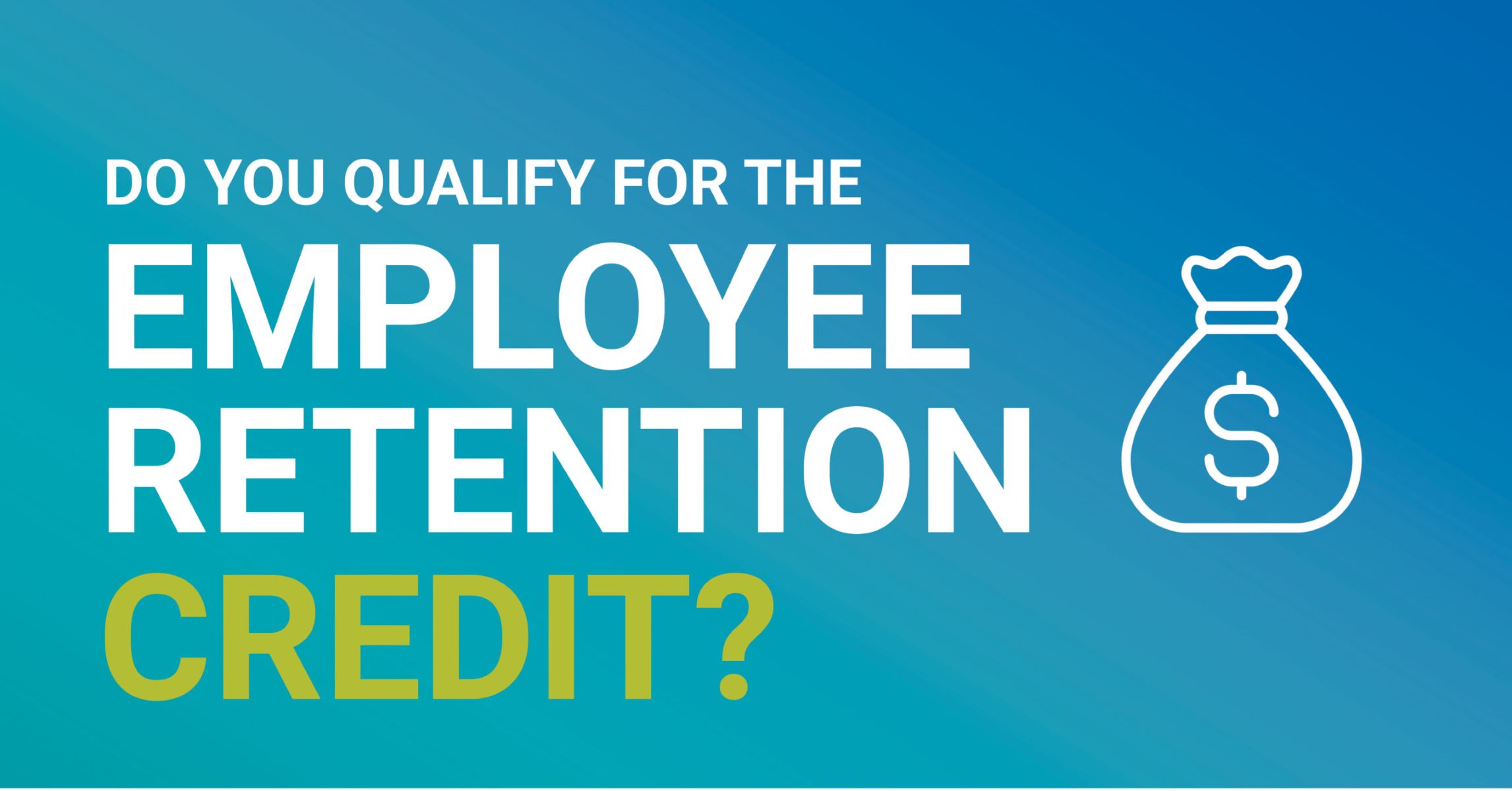

Finance
What Is A Public Record On Credit Report
Published: October 20, 2023
Learn how public records on credit reports can impact your finances and creditworthiness. Understand what they are and how to manage them effectively.
(Many of the links in this article redirect to a specific reviewed product. Your purchase of these products through affiliate links helps to generate commission for LiveWell, at no extra cost. Learn more)
Table of Contents
Introduction
In today’s digital age, credit plays a crucial role in almost every aspect of our lives. Whether you’re applying for a loan, renting an apartment, or even getting a job, your creditworthiness is often assessed through your credit report. A credit report is a detailed record of your credit history, including information about your past and present credit accounts, payment history, and any negative marks that may impact your creditworthiness.
One important aspect of a credit report that can significantly impact your financial standing is the presence of public records. Public records are legal documents that are accessible to the public and can be found in various sources such as court records, government agencies, and other official databases. These records are often linked to financial troubles or legal issues and can have a significant impact on your credit scores and overall creditworthiness.
In this article, we will delve into what public records are in the context of credit reports, explore the different types of public records that can appear on your credit report, examine how they can affect your credit scores, and discuss the options you have for removing public records from your credit report.
Definition of a Public Record
Before diving into the details, let’s start by understanding what exactly a public record is in the context of credit reports. In simple terms, a public record is any legal document or information that is available to the public. These records are created and maintained by government agencies, courts, and other entities and can include a wide range of information.
When it comes to credit reports, public records refer to specific types of legal and financial records that can potentially impact your creditworthiness. These records fall into the category of public records because they are a matter of public record and can be accessed by anyone.
It is important to note that not all legal or financial documents are considered public records. Generally, public records on credit reports are associated with serious financial issues, such as bankruptcies, tax liens, judgments, foreclosures, repossessions, and civil lawsuits. These records can have a significant impact on your credit scores and may be viewed negatively by lenders and creditors.
The presence of public records on your credit report can potentially indicate financial instability or irresponsibility, which can make lenders hesitant to approve credit applications or offer favorable terms. Understanding the different types of public records that can appear on your credit report is crucial in taking steps to improve your creditworthiness and financial standing.
Types of Public Records on Credit Reports
When it comes to public records on credit reports, there are several types that can have a significant impact on your credit scores. Let’s take a closer look at each of these public records:
- Bankruptcies: Bankruptcy is a legal process that individuals or businesses go through when they are unable to repay their debts. The details of a bankruptcy filing, including the type and chapter of bankruptcy, will appear on your credit report and can remain there for up to 10 years.
- Tax Liens: A tax lien is imposed by the government when an individual or business fails to pay their taxes. This lien gives the government a legal claim to the individual’s property until the taxes are paid. Tax liens can negatively impact your credit scores and can remain on your credit report for up to seven years from the date they are paid.
- Judgments: A judgment is a decision made by a court in a civil lawsuit. When a judgment is issued against you, it means that you are legally obligated to pay a certain amount to the plaintiff. Judgments can have a significant negative impact on your credit scores and can remain on your credit report for up to seven years from the date they are filed.
- Foreclosures: Foreclosure occurs when a borrower fails to make mortgage payments, leading the lender to seize and sell the property to recover the outstanding debt. A foreclosure can stay on your credit report for up to seven years and can have a drastic negative impact on your credit scores.
- Repossessions: If you fail to make payments on a financed vehicle or other secured asset, the lender may repossess the item. Repossessions can significantly damage your credit scores and can remain on your credit report for up to seven years.
- Civil Lawsuits: Civil lawsuits involve legal disputes between individuals or organizations. If you are involved in a civil lawsuit and a judgment is issued against you, it can appear as a public record on your credit report, negatively impacting your creditworthiness.
It is important to note that the presence of any of these public records on your credit report can potentially have a long-lasting negative impact on your credit scores. It is crucial to understand how these records can affect your creditworthiness and take appropriate steps to improve your financial standing.
Bankruptcies
One of the most significant types of public records that can appear on your credit report is a bankruptcy filing. Bankruptcy is a legal process that individuals or businesses go through when they are unable to repay their debts. It provides a fresh start by eliminating or reducing the debt burden and allowing the individual or business to reorganize their finances.
When a bankruptcy is filed, it will have a major impact on your creditworthiness. It will be reported on your credit report and can remain there for up to 10 years, depending on the type of bankruptcy filed.
There are different types of bankruptcies, including Chapter 7 and Chapter 13 bankruptcies. In a Chapter 7 bankruptcy, also known as liquidation bankruptcy, most of the individual’s non-exempt assets are sold to repay creditors. This type of bankruptcy typically stays on your credit report for 10 years.
A Chapter 13 bankruptcy, on the other hand, involves a repayment plan where the individual makes regular payments to creditors over a period of three to five years. This type of bankruptcy remains on your credit report for seven years from the date of filing.
It’s important to note that bankruptcy can have severe consequences on your credit scores. It indicates financial distress and may make it difficult to obtain new credit or loans. Lenders and creditors may view bankruptcy as a high-risk factor and may offer less favorable terms, higher interest rates, or even outright denial of credit applications.
Rebuilding your credit after bankruptcy is possible, but it requires patience and responsible financial management. It’s crucial to establish good credit habits, such as making timely payments, keeping credit utilization low, and maintaining a mix of credit accounts.
If you have filed for bankruptcy in the past, it’s essential to regularly check your credit report to ensure that the bankruptcy information is accurately reported and that it is eventually removed once the required time has elapsed.
Remember, while bankruptcy may be a necessary step for some individuals or businesses to regain control of their finances, it’s important to consider all options and consult with a bankruptcy attorney or financial advisor to understand the implications and explore alternatives before making a decision.
Tax Liens
Another type of public record that can have a significant impact on your credit report is a tax lien. A tax lien is a legal claim imposed by the government when an individual or business fails to pay their taxes owed to the government.
When a tax lien is filed, it will appear as a public record on your credit report and can have a detrimental effect on your credit scores. Tax liens indicate financial irresponsibility and can make lenders hesitant to extend credit or offer favorable terms.
The duration that a tax lien remains on your credit report depends on whether it has been paid or satisfied. If you pay the tax lien or reach a settlement with the government, it will generally stay on your credit report for up to seven years from the date it was paid or satisfied.
However, if the tax lien remains unpaid, it can stay on your credit report for an extended period, potentially up to 15 years. Unpaid tax liens have a significant negative impact on your creditworthiness and can make it challenging to obtain new credit or loans.
It’s important to note that the credit reporting agencies are making changes to their reporting policies regarding tax liens. In 2018, the three major credit bureaus, Equifax, Experian, and TransUnion, decided to remove tax liens from credit reports if the liens fail to include certain minimum identifying information, such as name, address, and social security number.
Removing a tax lien from your credit report can be a complex process. In some cases, paying off the tax lien or entering into a repayment plan with the government may help improve your creditworthiness. It’s advisable to consult with a tax professional or seek legal advice to understand your options and determine the best course of action.
It’s crucial to monitor your credit report regularly to ensure the accuracy of any reported tax liens. If you believe there is an error or inaccurate information regarding a tax lien on your credit report, you have the right to dispute it with the credit reporting agencies and provide supporting documentation to rectify the situation.
Remember, to maintain a good credit standing, it’s essential to fulfill your tax obligations and pay your taxes on time. This will not only help you avoid the negative impact of tax liens on your credit report but also prevent potential legal and financial consequences.
Judgments
Judgments are another type of public record that can have a significant impact on your credit report and overall creditworthiness. A judgment is a decision made by a court in a civil lawsuit, typically involving a dispute between two parties.
When a judgment is issued against you, it means that you are legally obligated to pay a certain amount to the plaintiff. This can occur in various situations, such as unpaid debts, contract disputes, or personal injury claims.
Having a judgment on your credit report can be detrimental to your credit scores and make it difficult to obtain new credit or loans. It indicates to lenders and creditors that you have failed to fulfill your financial obligations or that you have been involved in legal disputes.
Judgments can remain on your credit report for up to seven years from the date they are filed. It’s important to note that even if you pay the judgment, it will still be reported on your credit report, though it may be updated to show that it has been paid or satisfied.
Removing a judgment from your credit report can be challenging, as it generally requires providing evidence to the credit reporting agencies that the judgment was invalid or has been resolved. It’s recommended to seek legal advice and consult with an attorney to explore your options and understand the necessary steps to address the judgment on your credit report.
It’s also important to review the judgment carefully to ensure its accuracy. If you believe there is an error or an inaccurate judgment on your credit report, you have the right to dispute it with the credit reporting agencies. Provide any supporting documentation or evidence to substantiate your claim and request that the judgment be corrected or removed from your credit report.
Rebuilding your credit after a judgment takes time and dedication. Establishing good credit habits such as making timely payments, reducing debt, and maintaining a low credit utilization ratio can help improve your creditworthiness over time. It’s crucial to be proactive in managing your finances and addressing any negative marks on your credit report to rebuild your credit effectively.
Remember, judgments not only impact your credit scores but can also result in legal consequences such as wage garnishment or liens on your property. It’s important to address and resolve judgments promptly and responsibly to minimize their impact on your financial well-being.
Foreclosures
A foreclosure is a legal process that occurs when a borrower fails to make mortgage payments, leading the lender to seize and sell the property to recover the outstanding debt. Foreclosures have a significant impact on your credit report and can have long-lasting effects on your creditworthiness.
When a foreclosure is initiated, it will be reported as a public record on your credit report. This record indicates to lenders and creditors that you were unable to meet your mortgage obligations, which can be viewed negatively when considering new credit or loans.
Foreclosures can remain on your credit report for up to seven years from the date of the initial missed payment that led to the foreclosure. This negative mark on your credit report can significantly lower your credit scores and make it challenging to obtain favorable credit terms in the future.
It’s important to note that the impact of a foreclosure on your credit scores can vary depending on your overall credit history and the completeness of the foreclosure information reported. Additionally, future creditors may consider the circumstances of the foreclosure, such as the reasons behind the financial hardship, before making lending decisions.
Recovering from a foreclosure and rebuilding your credit is possible, but it requires time and effort. Here are some steps you can take:
- Address any remaining debt: After a foreclosure, you may still have outstanding mortgage debt or other associated debts. It’s important to address and resolve these obligations to minimize their impact on your credit and financial well-being.
- Establish good credit habits: Begin rebuilding your credit by establishing good credit habits. This includes making timely payments on all your current obligations, keeping credit utilization low, and being responsible with new credit accounts.
- Monitor your credit report: Regularly monitor your credit report to ensure that the foreclosure information is accurately reported. If there are any inaccuracies, you have the right to dispute these errors with the credit reporting agencies.
- Show financial responsibility: Demonstrate financial responsibility by managing your finances effectively. This includes paying bills on time, keeping debt levels manageable, and avoiding any new financial pitfalls.
Recovering from a foreclosure takes time and patience, but with responsible financial management and a proactive approach to rebuilding credit, you can improve your creditworthiness over time.
It’s important to remember that a foreclosure does not define your financial future. By learning from the experience, taking appropriate steps to address your financial situation, and making wise choices going forward, you can rebuild your credit and work towards a stronger financial future.
Repossessions
Repossession refers to the act of a lender reclaiming an item, typically a vehicle, when a borrower fails to make timely payments. When a repossession occurs, it can have a significant impact on your credit report and creditworthiness.
When a vehicle or other asset is repossessed, it becomes a public record that is reported on your credit report. This negative mark indicates to lenders and creditors that you were unable to fulfill your financial obligations, potentially making it challenging to obtain new credit or loans in the future.
A repossession can remain on your credit report for up to seven years from the date of the initial missed payment that led to the repossession. This can have a detrimental effect on your credit scores and overall creditworthiness.
It’s important to note that while a repossession may have caused damage to your credit, it’s not a permanent barrier to financial recovery. By taking the following steps, you can begin to rebuild your credit:
- Address outstanding debt: After a repossession, you may still have outstanding debt related to the vehicle or asset. It’s crucial to address and resolve this debt to prevent further negative consequences and potential legal actions.
- Establish good credit habits: Start building positive credit habits by making all other payments on time, keeping credit card balances low, and managing new credit accounts responsibly.
- Consider a secured credit card: If you’re having trouble obtaining new credit, a secured credit card might be an option. With a secured credit card, you provide a deposit as collateral, which can help establish or rebuild your credit history.
- Monitor your credit: Regularly monitor your credit report to ensure the accuracy of the repossession information. If any errors or inaccuracies are present, you have the right to dispute them with the credit reporting agencies.
Rebuilding your credit after a repossession takes time and discipline. It’s essential to be patient, practice responsible financial management, and avoid any new financial pitfalls along the way.
Remember, a repossession does not define your financial future. By learning from the experience, addressing outstanding debts, and actively working towards improving your credit, you can rebuild your creditworthiness and regain financial stability.
Civil Lawsuits
In the realm of public records on credit reports, civil lawsuits can have a significant impact on your creditworthiness. A civil lawsuit is a legal dispute between individuals or organizations, typically involving financial matters such as unpaid debts, contract disputes, or personal injury claims.
If a judgment is issued against you as a result of a civil lawsuit, it can be reported as a public record on your credit report. This can have a detrimental effect on your credit scores and financial standing, as it indicates a failure to fulfill your financial obligations or involvement in legal disputes.
A civil judgment can remain on your credit report for up to seven years from the date it was filed. During this time, it can make it challenging to obtain new credit or loans since lenders and creditors may view you as a higher-risk applicant.
Resolving a civil judgment and minimizing its impact on your credit report can be challenging. It often requires satisfying the judgment by paying the owed amount in full. Once the judgment is satisfied, it may be updated on your credit report to reflect the payment.
If you believe there is an error or an inaccurate civil judgment on your credit report, you have the right to dispute it with the credit reporting agencies. Providing supporting documentation or evidence that the judgment is incorrect or has been resolved can help rectify the situation.
To rebuild your credit after a civil judgment, it is crucial to establish or maintain good credit habits. This includes making timely payments on all your current financial obligations, keeping your credit utilization low, and managing your credit responsibly.
Furthermore, it’s essential to monitor your credit report regularly to ensure the accuracy of any reported civil judgments. If you find any discrepancies or inaccuracies, dispute them promptly to prevent any unnecessary damage to your creditworthiness.
Ultimately, addressing and resolving civil judgments is crucial to improving your creditworthiness and financial health. By being proactive, staying diligent, and taking steps to manage your debts responsibly, you can work towards rebuilding your credit and regaining control of your financial future.
How Public Records Affect Credit Scores
Public records on credit reports can have a significant impact on your credit scores. These public records, including bankruptcies, tax liens, judgments, foreclosures, repossessions, and civil lawsuits, are viewed as negative marks by lenders and creditors.
The presence of public records indicates financial instability or legal issues, suggesting a higher level of risk for potential lenders. As a result, public records can result in a decrease in your credit scores, making it more challenging to obtain new credit or loans.
Public records tend to carry more weight and have a more severe impact on your credit scores compared to other negative marks, such as late payments or high credit card balances. This is because public records often indicate significant financial distress or legal troubles that can impact a person’s ability to manage their finances responsibly.
It’s important to note that the impact of public records on credit scores can vary depending on other factors present on your credit report. For example, if you have an otherwise strong credit history with a long record of on-time payments and low credit utilization, the impact of a single public record may be less significant compared to someone with a thin credit file or other negative marks.
The duration that public records stay on your credit report also impacts how long they can affect your credit scores. Depending on the type of public record, it can remain on your credit report for up to seven to ten years or longer. During this time, they can continue to have a negative impact on your creditworthiness.
While public records can significantly impact your credit scores, it is not the end of your credit journey. With time, responsible financial management, and a proactive approach, you can still rebuild your credit and improve your creditworthiness.
To minimize the impact of public records on your credit scores, it’s important to address and resolve any outstanding debts or legal issues associated with these records. Paying off tax liens, satisfying civil judgments, or entering into repayment plans can help demonstrate financial responsibility and begin the credit rebuilding process.
Additionally, establishing positive credit habits, such as making all payments on time, keeping credit card balances low, and diversifying your credit mix, can help offset the negative impact of public records over time. By demonstrating responsible financial behavior, you can gradually rebuild your credit and improve your creditworthiness.
Remember, the impact of public records on your credit scores is not permanent. With diligence, patience, and persistence, you can overcome the challenges posed by public records and work towards achieving a stronger financial future.
How Long Public Records Stay on Credit Reports
Public records on credit reports have a significant impact on your creditworthiness and can affect your ability to obtain new credit or loans. It is important to be aware of how long these public records can remain on your credit report as they can have a lasting impact on your credit scores.
The duration that public records stay on your credit report depends on the type of record. Here are the general timeframes for how long public records can remain on your credit report:
- Bankruptcies: Both Chapter 7 and Chapter 13 bankruptcies can stay on your credit report for up to 10 years from the date of filing.
- Tax Liens: Paid tax liens can remain on your credit report for up to seven years from the date they were paid. However, if a tax lien remains unpaid, it can stay on your credit report for an extended period, potentially up to 15 years.
- Judgments: Civil judgments can typically stay on your credit report for up to seven years from the date they were filed.
- Foreclosures: Foreclosures can stay on your credit report for up to seven years from the date of the initial missed payment that led to the foreclosure.
- Repossessions: Repossessions can also remain on your credit report for up to seven years from the date of the repossession.
- Civil Lawsuits: The duration of civil lawsuits on your credit report typically depends on whether a judgment was issued. If a judgment is issued, it can remain on your credit report for up to seven years from the date it was filed.
It is important to note that even after the specified timeframes, public records may not automatically be removed from your credit report. It is the responsibility of the credit reporting agencies to update and remove these records once the required time has elapsed.
To ensure the accuracy of your credit report, it is crucial to periodically review your report and verify that public records have been correctly updated or removed after the appropriate timeframe. If you find any errors or discrepancies, you have the right to dispute these inaccuracies with the credit reporting agencies and provide any supporting documentation to rectify the situation.
While public records can remain on your credit report for an extended period, their impact on your credit scores gradually diminishes over time. It’s crucial to focus on responsible financial management, establish positive credit habits, and demonstrate your ability to handle credit obligations effectively to improve your creditworthiness over the long term.
Remember, while public records can have a negative impact on your credit, they are not a permanent barrier to financial recovery. With patience, diligence, and responsible credit behavior, you can gradually rebuild your credit and work towards a stronger financial future.
How to Remove Public Records from Credit Reports
Removing public records from your credit report is not an easy task, as they are legally documented and a matter of public record. However, there are steps you can take to address and potentially minimize the impact of public records on your creditworthiness. Here are some strategies to consider:
- Dispute inaccuracies: Review your credit report carefully to ensure the accuracy of the public record information. If you find any errors or inaccuracies, gather supporting documentation and file a dispute with the credit reporting agencies. They are required to investigate your claim and update your credit report accordingly.
- Pay off the debt: If the public record is associated with an outstanding debt, such as a tax lien or judgment, consider paying off the debt in full. Once the debt is paid, it may be updated on your credit report to indicate that it has been satisfied, which can help improve your creditworthiness.
- Reach a settlement: In some cases, you may be able to negotiate a settlement with the party involved in the public record. For example, you can work out a payment plan or negotiate a reduced amount to satisfy the debt. Once the settlement has been reached, it’s important to obtain documentation of the agreement and ensure that it is updated on your credit report.
- Time and persistence: Unfortunately, the passage of time is often the only way to remove a public record from your credit report. Depending on the type of record, it may take several years for it to expire and be automatically removed. However, focusing on improving your credit during this time can help mitigate the impact of the public record.
- Seek professional assistance: If you are struggling to remove a public record from your credit report or need guidance on the best approach, consider seeking help from a credit repair agency or a credit attorney. They can provide advice and assistance in navigating the process and advocating on your behalf.
It’s important to note that removing a legitimate and accurate public record can be challenging. Credit reporting agencies are required to report accurate information, especially if the public record is still within the applicable reporting timeframe. However, by addressing any inaccuracies, settling outstanding debts, and practicing responsible financial management, you can gradually improve your creditworthiness over time.
Remember, rebuilding your credit after the presence of public records takes time, patience, and dedication. Focus on establishing positive credit habits, such as making timely payments, reducing debt, and diversifying your credit mix. Over time, these efforts can help offset the negative impact of public records and improve your overall creditworthiness.
Conclusion
Public records on credit reports can have a significant impact on your creditworthiness and financial standing. Bankruptcies, tax liens, judgments, foreclosures, repossessions, and civil lawsuits are all types of public records that lenders and creditors take into account when assessing your creditworthiness. These records indicate financial instability, legal issues, or failure to fulfill obligations, which can lead to difficulty obtaining new credit or loans.
Understanding the types of public records and their duration on your credit report is important in managing and improving your credit. While the impact of public records is significant, it is not permanent. With time, responsible financial management, and a proactive approach, you can rebuild your credit and improve your creditworthiness.
Addressing and resolving outstanding debts associated with public records is crucial. Paying off tax liens, satisfying judgments, or reaching settlements can help demonstrate financial responsibility and positively impact your credit report.
Regularly monitoring your credit report for any inaccuracies or errors is also important. If you find any discrepancies, you have the right to dispute them with the credit reporting agencies and provide supporting documentation to rectify the situation.
Remember that rebuilding your credit after public records takes time and patience. Establishing good credit habits, such as making timely payments, keeping credit card balances low, and maintaining a diverse credit mix, is essential. By demonstrating responsible financial behavior and focusing on the future, you can gradually improve your creditworthiness and work towards a stronger financial foundation.
While public records can present challenges, they do not define your financial future. By learning from past mistakes, taking proactive steps to address negative marks, and being diligent in managing your finances, you can overcome the impact of public records and achieve long-term financial success.














